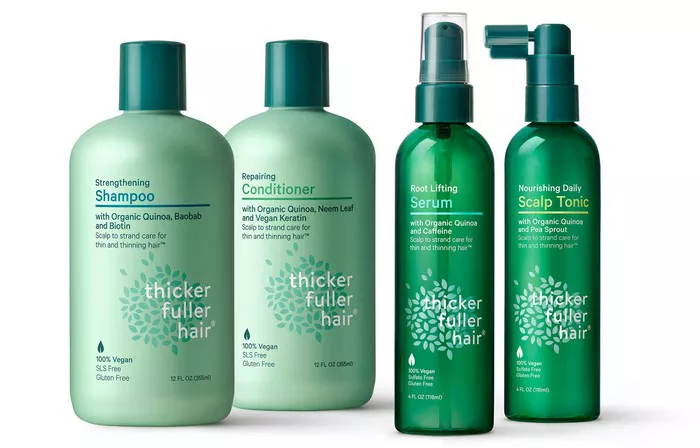In the quest for luscious locks, women often face a common enemy: DHT, or dihydrotestosterone. This hormone, which plays a pivotal role in hair loss, can wreak havoc on female tresses. But fret not, for we are here to guide you through the intricate world of DHT reduction and how to promote healthy hair growth. In this article, we will explore six essential strategies to tackle this issue head-on.
Understanding DHT and Its Impact on Female Hair
Dihydrotestosterone (DHT) is a hormone derived from testosterone that plays a crucial role in hair growth and loss. In both males and females, DHT can bind to hair follicles, causing them to shrink and ultimately leading to thinner, weaker hair. However, the impact of DHT on female hair is generally less pronounced than in males, mainly due to lower testosterone levels. Female pattern hair loss can still occur, characterized by diffuse thinning rather than bald patches. Genetics, hormonal changes, and aging contribute to DHT sensitivity. Managing DHT-related hair loss in women often involves medications like minoxidil or addressing underlying hormonal imbalances through medical consultation.
The Role of Diet in Taming DHT
A balanced diet rich in specific nutrients can be your secret weapon against excessive DHT. Incorporate foods high in antioxidants, vitamins, and minerals, such as biotin, zinc, and iron. These nutrients can support hair growth and reduce the negative effects of DHT.
1. Biotin: The Hair-Strengthening Wonder
Biotin, often referred to as vitamin H, is renowned for its hair-strengthening properties. It promotes keratin production, the protein responsible for hair strength, helping combat DHT-induced hair loss.
2. Zinc and Iron: Building Blocks of Healthy Hair
Zinc and iron are essential minerals for hair health. Zinc helps regulate hormone levels, including DHT, while iron ensures proper oxygen flow to the hair follicles, aiding growth and reducing breakage.
The Role of Topical DHT Blockers
To tackle DHT-related hair loss head-on, consider using topical DHT blockers. These products can help inhibit DHT production within the hair follicles, promoting a healthy environment for hair growth.
1. Minoxidil: The Gold Standard
Minoxidil, a popular topical treatment, has been proven effective in promoting hair growth by extending the hair’s growth phase and reversing DHT’s harmful effects.
2. Natural Alternatives: Saw Palmetto and Pumpkin Seed Oil
For those seeking natural alternatives, saw palmetto and pumpkin seed oil have shown promise in inhibiting DHT and promoting hair growth when applied topically.
The relationship between stress management and DHT
Stress management plays a significant role in DHT (dihydrotestosterone) regulation. Chronic stress can elevate cortisol levels, which can, in turn, increase DHT production in the body. Elevated DHT levels are associated with hair loss, particularly in individuals genetically predisposed to androgenetic alopecia (male and female pattern baldness). Managing stress through relaxation techniques, exercise, and mindfulness can help reduce cortisol and DHT levels, potentially slowing down or preventing hair loss. While stress management alone may not fully reverse hair loss, it can be a valuable component of a comprehensive approach to maintaining healthy hair and preventing further DHT-related damage, especially when combined with appropriate medical interventions.
Regular Scalp Massage and Gentle Hair Care
Regular scalp massages can stimulate blood circulation and reduce DHT accumulation in hair follicles. Additionally, adopting a gentle hair care routine, including using sulfate-free products and avoiding excessive heat styling, can help maintain hair health.
Consultation with a Healthcare Professional
If hair loss persists despite your best efforts, consulting a healthcare professional or dermatologist is crucial. They can conduct comprehensive evaluations and recommend personalized treatments, including medications or advanced therapies, to address your specific needs.
See Also: Which Serum is Good for Frizzy Hair: Recommendations and Tips
In conclusion
DHT-related hair loss in females can be challenging, but it’s not insurmountable. By adopting a holistic approach that includes a balanced diet, topical treatments, stress management, and expert guidance, you can take control of your hair health. Remember that achieving results may take time, so be patient and persistent in your pursuit of vibrant, healthy locks.


